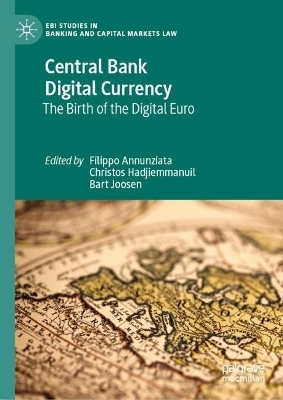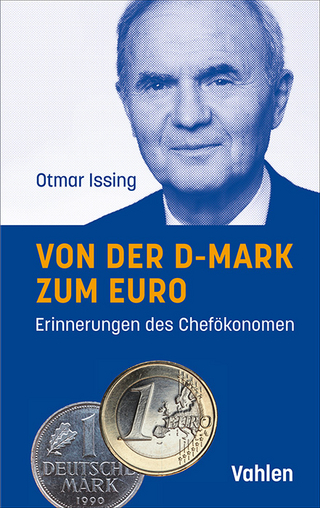
Central Bank Digital Currency
Springer International Publishing (Verlag)
978-3-031-80956-9 (ISBN)
- Noch nicht erschienen - erscheint am 10.08.2025
- Versandkostenfrei innerhalb Deutschlands
- Auch auf Rechnung
- Verfügbarkeit in der Filiale vor Ort prüfen
- Artikel merken
This book looks at the new phenomenon of Central Bank Digital Currency (CBDC) with a focus on the launch of the Digital Euro in the European Union. It contains treatment of the subject of CBDC from various perspectives, with each of the authors formulating viewpoints regarding this new phenomenon. It also offers an insightful assessment of the legal status of a central bank digital currency, engaging in the theoretical effort of testing the legal implications of the birth of a digital complement to cash. The chapters focus on the rationale for a digital Euro, its ability to aid financial inclusion, the constitutional foundations of the CBDC, demands of a digital euro on the side of the beneficiaries of the retail payment system, and the "mechanics" of the CBDC in relation to its issuance and governance. It will be of interest to financial services, banking, financial regulation, and monetary policy researchers and scholars alongside lawyers and policymakers.
Filippo Annunziata is a Professor of Financial Markets and Banking Legislation at Bocconi University, Milan, Italy, where he is a Member of the Faculty of the PhD in Legal Studies. He is also Professor of Musicology at Università degli Studi di Milano, Visiting Professor at Ca' Foscari University, Venice Italy, and Visiting Professor at Leuven University, Belgium. and co-chair of the Advanced Researchers Group (ARG).
Christos Hadjiemmanuil is a member of the General Council of the Bank of Greece and a Professor of International and European Monetary and Financial Institutions at the University of Piraeus, Greece, and Visiting Professor at the Law School of the London School of Economics, UK. He is a member of the Athens Bar Association and co-chair of the ARG.
Bart Joosen is a professor Financial Law at the Faculty of Law of Leiden University, Hazelhoff Centre for Financial Law. He is a part time professor at the Florence School of Banking and Finance, of the Robert Schumann Institute for Advanced Studies of the European University Institute. He is a fellow of the European Banking Institute in Frankfurt a/M, Germany and co-chair of the ARG.
I. Introduction.- II. Objectives, Rationale, Opportunities versus Main Risks of a CBDC: Principles for a Coherent European Financial Regulation.- III. Central Bank Digital Currency and the Treaty Mandate of the European Central Bank.- IV. The Digital Euro and the EU Framework for Payments.- V. The Demand for CBDC in the Perspective of Existing (Retail) Payment Systems.- VI. Digital Euro and Financial Inclusion Considerations on Trust, the Digital Divide and Financial Literacy.- VII. Governance Issues Concerning the Issuer of CBDC, who Supervises and Controls the CBDC Scheme?.- VIII. Exploring the Impact of the Digital Euro on Euro Area Banks.- IX. Anti-Money Laundering (AML) Implications of Central Bank Digital Currencies (CBDC).
| Erscheint lt. Verlag | 10.8.2025 |
|---|---|
| Reihe/Serie | EBI Studies in Banking and Capital Markets Law |
| Zusatzinfo | Approx. 250 p. |
| Verlagsort | Cham |
| Sprache | englisch |
| Maße | 148 x 210 mm |
| Themenwelt | Recht / Steuern ► Wirtschaftsrecht ► Bank- und Kapitalmarktrecht |
| Wirtschaft ► Betriebswirtschaft / Management ► Finanzierung | |
| Betriebswirtschaft / Management ► Spezielle Betriebswirtschaftslehre ► Bankbetriebslehre | |
| Schlagworte | Anti-Money Laundering (AML) • CBDC • Central Bank Digital Currency • Central Banking • Central Banks • digital currency • European Financial Regulation • Financial Inclusion • Retail Payment Systems • The Digital Euro |
| ISBN-10 | 3-031-80956-4 / 3031809564 |
| ISBN-13 | 978-3-031-80956-9 / 9783031809569 |
| Zustand | Neuware |
| Informationen gemäß Produktsicherheitsverordnung (GPSR) | |
| Haben Sie eine Frage zum Produkt? |
aus dem Bereich


